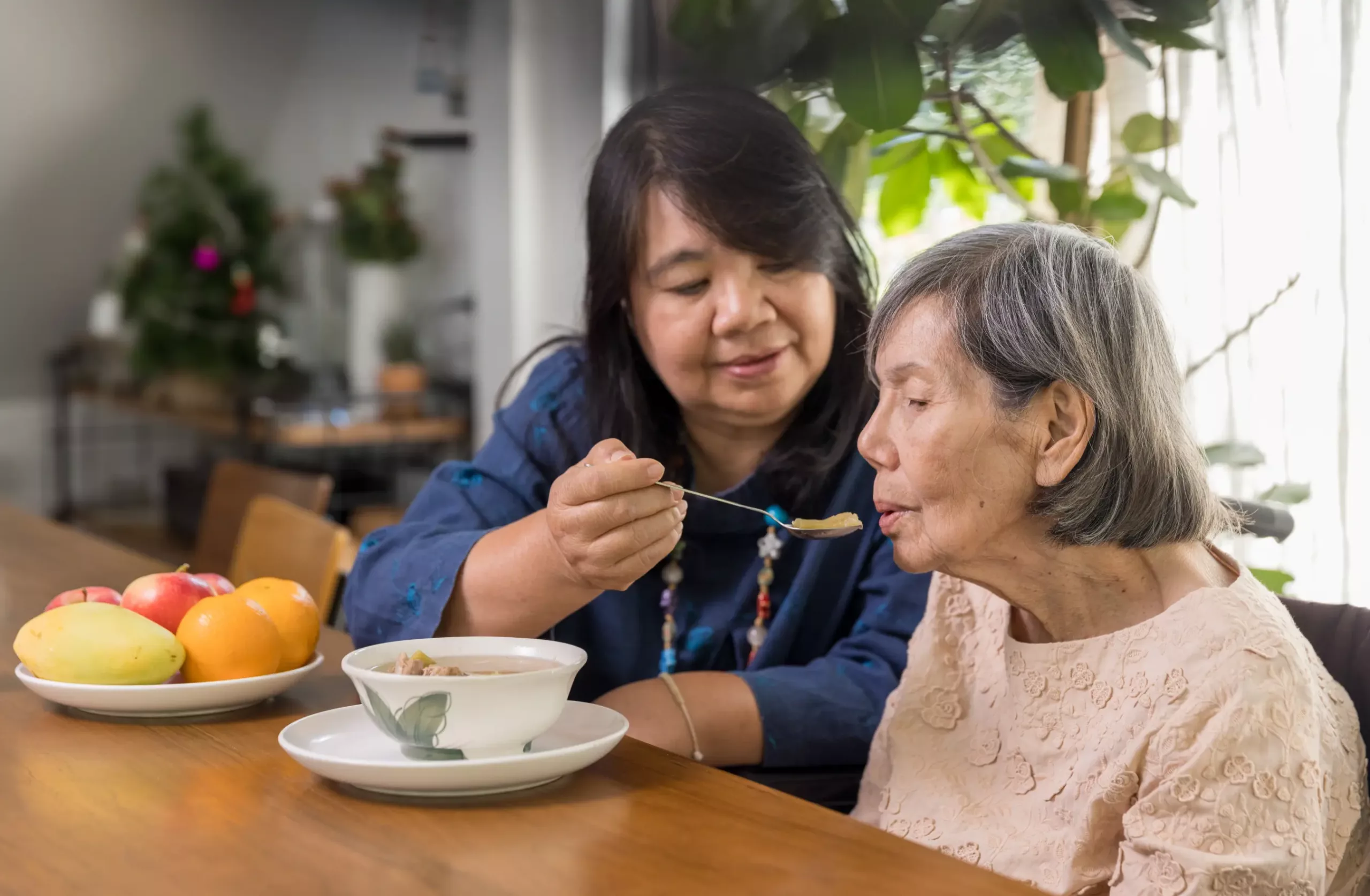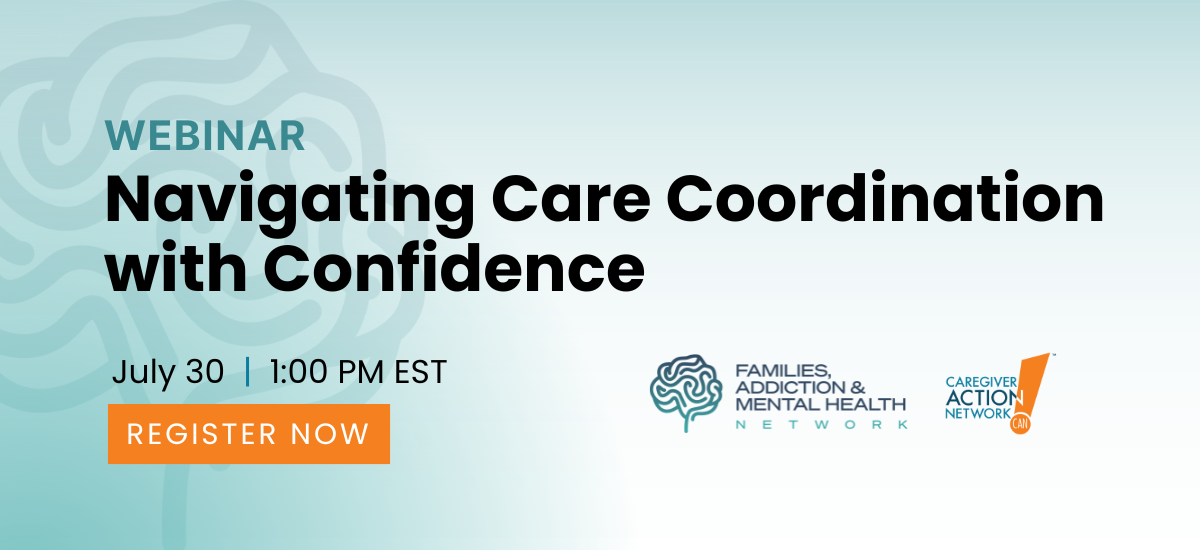Wait, I Might Be a Caregiver! What Does That Mean?
Wait, I Might Be a Caregiver! What Does That Mean?

By Marvell Adams Jr., CEO, Caregiver Action Network
If you are caring for a loved one—whether they’re aging or impacted by a disease or condition—you know that it’s an immense responsibility. Caregiving can take a significant toll and give you little time for work, family, friends, or anything else. Caregivers report much higher levels of stress than people who are not caregivers.
The amount of stress you have can depend on the disease or condition of your loved one. The CDC reports that caregivers of loved ones with Alzheimer’s are at greater risk for anxiety and depression than other caregivers—which can be exacerbated by their loved one’s behavioral symptoms like agitation. NIH reports that caregivers of loved ones with serious mental illness, such as schizophrenia, also experience a higher level of stress—due to factors such as uncertainty and stigma.
If this stress is left unchecked, it can affect your mental, physical, and emotional well-being. Caregiver burnout is the emotional and physical exhaustion caregivers may experience caused by the long-term stress of caregiving.
Understanding Caregiver Burnout
 Many aspects of caregiving can lead to burnout. You may feel you have conflicting demands on your time—particularly if you have children or other family who need your care. You may feel guilty, thinking you should be doing more, or are neglecting other family members. If you’ve had to stop or cut back on working, out-of-pocket medical costs can bring financial pressures.
Many aspects of caregiving can lead to burnout. You may feel you have conflicting demands on your time—particularly if you have children or other family who need your care. You may feel guilty, thinking you should be doing more, or are neglecting other family members. If you’ve had to stop or cut back on working, out-of-pocket medical costs can bring financial pressures.
Caregiver burnout can harm one’s physical and mental health. Caregivers may feel anxious, depressed, or even angry. They may be sleeping too much or too little, gaining or losing weight, having headaches or difficulty concentrating. Caregiver burnout can also lead to unhealthy behaviors like smoking or drinking too much alcohol.
Recognizing the Signs of Burnout
Caregiver burnout doesn’t happen overnight; it develops gradually as caregiving demands become overwhelming. Symptoms of burnout may include:
- Constant fatigue and low energy
- Feelings of anxiety, depression, or irritability
- Sleep disturbances (sleeping too much or too little)
- Changes in appetite or weight
- Difficulty concentrating or making decisions
- Engaging in unhealthy behaviors, such as smoking or excessive drinking
If left unchecked, these symptoms can affect your physical, emotional, and mental health. That’s why caregiver burnout prevention strategies are essential for maintaining your well-being.
Strategies for Caregiver Burnout Prevention
Don’t let the stress and demands of caregiving overwhelm you. Recognize the invaluable work you do every day. Caregiver Action Network (CAN) has tips and tools to help you avoid burnout and keep some caregiving-life balance.
Remember, you are not alone. Millions of Americans are in your shoes. Embrace your role as a caregiver and let us help you navigate this journey with the care and compassion you deserve.
Overcoming caregiver burnout requires both proactive self-care and support. Here are some effective strategies for avoiding caregiver burnout:
1. Acknowledge Your Role as a Caregiver
Many people don’t recognize themselves as caregivers and may not realize they need support. By identifying as a caregiver, you open the door to resources and help that can alleviate the burden.
2. Prioritize Self-Care
Taking care of yourself isn’t selfish—it’s essential for preventing burnout. Make time for activities that recharge you, such as exercise, hobbies, or spending time with friends. Regular self-care helps you manage stress and keeps you healthy, allowing you to continue supporting your loved one effectively.
3. Set Boundaries
It’s important to set realistic boundaries in your caregiving role. Learn to say no to requests that go beyond what you can handle, and avoid overcommitting yourself. Setting boundaries allows you to focus on what’s manageable without overwhelming yourself.
4. Seek Support from Healthcare Providers
Letting your own doctor know you’re a caregiver can help them monitor your health for signs of stress-related conditions like anxiety and depression. If your loved one’s healthcare team is aware of your role, they can provide guidance and advice that considers the full picture.
5. Join a Support Group
Connecting with other caregivers can offer emotional relief and practical advice. Support groups provide a space to share experiences, learn from others, and feel less alone in your caregiving journey. Consider joining a local group or an online community like the Caregiver Action Network Community.
6. Utilize Professional Resources
Professional support can make a big difference in managing caregiving challenges. The Caregiver Help Desk provides free, personalized support to help you navigate your role. Additionally, consider consulting a geriatric care manager or care counselor for expert guidance tailored to your situation.
7. Take Advantage of Respite Care
Respite care offers temporary relief by providing professional care for your loved one, allowing you to take a break. Many caregivers feel guilty about taking time off, but it’s vital for caregiver burnout prevention. A well-rested caregiver can provide better care and prevent the risk of burnout.
National Family Caregivers Month: A Time to Recognize Caregivers
 November is National Family Caregivers Month, a time dedicated to honoring family caregivers and recognizing their vital contributions. This year’s theme, “I Care…,” emphasizes the importance of self-recognition and self-identity in the caregiving journey. Many caregivers don’t identify as such, which can prevent them from accessing resources that support their well-being. By acknowledging your role, you take the first step toward finding the help you need.
November is National Family Caregivers Month, a time dedicated to honoring family caregivers and recognizing their vital contributions. This year’s theme, “I Care…,” emphasizes the importance of self-recognition and self-identity in the caregiving journey. Many caregivers don’t identify as such, which can prevent them from accessing resources that support their well-being. By acknowledging your role, you take the first step toward finding the help you need.
According to the National Council on Aging, the population of adults aged 65 and older is growing rapidly, with projections indicating they will make up 22% of the U.S. population by 2040. At the same time, family caregiving support is diminishing, with fewer caregivers available per older adult. Now more than ever, it’s essential for caregivers to recognize their roles and seek out resources to prevent burnout and maintain a healthy balance.
It’s time we addressed this caregiving crisis head-on. By narrowing the gap between those providing care and those who self-identify as caregivers, we can connect them to the life-changing assistance that can alleviate their stress, improve their well-being, and ensure their loved ones receive the care they need.
Get the Help You Need for Caregiver Burnout Prevention
If you’re feeling overwhelmed, remember that you don’t have to navigate caregiving alone. Caregiver Action Network (CAN) provides valuable resources, tips, and tools to support you. Here are some helpful links:
- 10 Tips for Family Caregivers – Practical strategies to help you manage stress and avoid burnout.
- Take Care of Your Mental Health – Use this free depression screener to monitor your well-being.
- Share Your Caregiver Story – Connect with others by sharing your experiences.
Caregiving is an essential role, and your well-being is just as important as the care you provide. With the right support and strategies for caregiver burnout prevention, you can maintain a healthier balance and continue making a difference in your loved one’s life.




